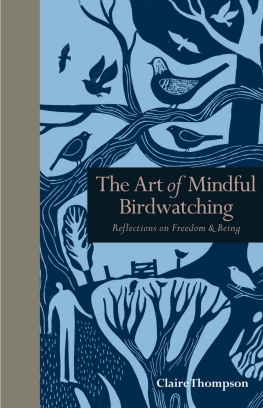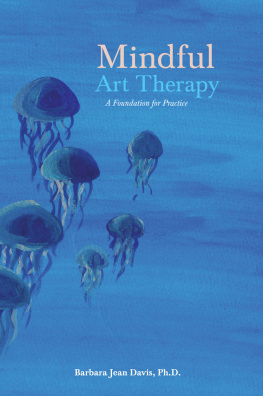Thompson - Mindful Communications
Here you can read online Thompson - Mindful Communications full text of the book (entire story) in english for free. Download pdf and epub, get meaning, cover and reviews about this ebook. year: 2017, genre: Home and family. Description of the work, (preface) as well as reviews are available. Best literature library LitArk.com created for fans of good reading and offers a wide selection of genres:
Romance novel
Science fiction
Adventure
Detective
Science
History
Home and family
Prose
Art
Politics
Computer
Non-fiction
Religion
Business
Children
Humor
Choose a favorite category and find really read worthwhile books. Enjoy immersion in the world of imagination, feel the emotions of the characters or learn something new for yourself, make an fascinating discovery.
- Book:Mindful Communications
- Author:
- Genre:
- Year:2017
- Rating:3 / 5
- Favourites:Add to favourites
- Your mark:
- 60
- 1
- 2
- 3
- 4
- 5
Mindful Communications: summary, description and annotation
We offer to read an annotation, description, summary or preface (depends on what the author of the book "Mindful Communications" wrote himself). If you haven't found the necessary information about the book — write in the comments, we will try to find it.
Mindful Communications — read online for free the complete book (whole text) full work
Below is the text of the book, divided by pages. System saving the place of the last page read, allows you to conveniently read the book "Mindful Communications" online for free, without having to search again every time where you left off. Put a bookmark, and you can go to the page where you finished reading at any time.
Font size:
Interval:
Bookmark:
To everyone who has been a part of my life personally and professionally because you all have made an impact on mylifes journey to be continued onwards and upwards
worldwide.Institute for Professional Excellence in Coaching.Coaches Training Institute.
Columbia Business School.
Zen Buddhism.
Thich Nhat Hanh.
Friends, Family, Colleagues, and Clients.
The art of mindful communications combines effectivelistening with awareness of yourself and others. Thich Nhat Hanh, a Vietnamese Zen Master, says that once youlearn to commune with yourself, youre better able tocommunicate with others with empathy and compassion. You can develop all these skills at the same time.
Initially, Ill describe three levels of listening:Subjective, Objective, and Intuitive. Examples and practicetechniques will be given to illustrate how listening is an active process, not passive. Thereafter, Ill exploreconnecting and communicating with yourselftounderstand mindful awareness. These two principles arethe foundation of becoming a mindful communicator.
After all, dont all of us want a better world to livein, and the opportunity to have more meaningful, loving,and productive relationships, whether its with our familyand friends or collaborating with our colleagues or beingof service to our clients? The answer is yes, andThe first principle building the foundation of becoming amindful communicator begins with the three levels ofeffectivelistening. Thefirst level oflisteningischaracterized by Subjective Listening and its how mostpeople conduct a conversation. Its more about thelisteners agenda and how his or her experiences relate back to what the other person is saying.
Lets take an example of two female startupentrepreneurswho arehardworking,motivated aboutbuilding their respective businesses, and supportive of oneanother. On averyhot,sunny, andhumid dayinManhattan with a heat index of 108F, Claire decides to go to Central Park and calls Margot. Claire says, I cant worktoday. I dont know whats the matter with me. My airconditioning is not working properly, the humidity makesit hard for me to breathe and here I am, sitting on a rock under the shade of the gorgeous trees in Central Park.
Margot replies based on how shes handled similarsituations in the past. Margot says, Ive learned to let myself take it easy whenever I couldnt concentrate or beproductive and found the following day, I was able toaccomplish everything I wanted to do and much more. Just take it easy.
Although this sounds like good advice from afriend and colleague, Margot related to Claires problem based on her own, past experiences. There is nothing wrong with subjective listening but it is based more on thelisteners experience versus the needs of the person whoinitiated the conversation. In this case, Claire might haveagreed with the kind advice or felt frustrated because shewasnt seeking a solution since she only needed someoneto listen to her woes.
Most times, women support one another withoutadvice but will relate similar experiences as a means ofsympathizing whereas men often listen with the intent ofcoming up with solutions. The key word here is need. What are the needs of the person you are listening to? Thistakes us to the second level of listening called ObjectiveListening.
Objective listening is focused on what the speaker is sayingwithout adding the listeners personal agenda. Its effectivebecause the listener lets the speaker know that he or shehas really listened and cares about what is being said, ineffect, acknowledgingwhat thespeakerhassaid and validating how the speaker feels. Practicing objectivelistening, along with acknowledgement and validation increases the skill of effectively communicating at a higherlevel. We want to keep increasing our level of listening skills step by step until we become a master at listeningthereby creating the life we want to lead.
Now, well take two colleagues working for a large, financial institution and illustrate thissecond level ofobjectivelistening. Sami complains to hiscolleagueMichelle, I have the worlds worst boss. Hes a jerk. Theyshould have promoted me rather than hire that guy fromthe outside. He doesnt have a clue how this divisionworks. Michelle replies, Its normal to be upset becauseyou felt that you should have been the one promoted.
In this case, Michelle demonstrated that she reallylistened and cared about what Sami said by acknowledging his desire to be promoted and validating his feelings ofbeing upset but with no judgment. Michelle didnt takesides with Sami agreeing that the boss is a jerk.
Instead, Michelle validated Samis perception ofthe situation because she didnt know the bosss point ofview. Thisillustrateshoweveryone has diverseperspectives in viewing situations because of their different past experiences.
Developing the additional skill of comprehending differing viewpoints enhances communication among people in all areasoftheirlives.Theobjectiveisto effectivelycommunicate so that we have better relationships that arepositive in nature which brings us to the third level oflistening, Intuitive Listening.
As we fine tune our listening skills, this third level is an excellent one to operate from on a consistent basis. Its like listening from a 360 perspective. The listener paysattention to the speakers tone of voice, picks up on his orher energy vibration, his or her body language, his or herfeelings, on top of whats being conveyed through the conversation. The listener intuitively connects with thespeaker picking up on the underlying message.
Sometimes, its about what the speaker is nottelling the listener and its for the listener to act like adetective and uncover the real message. Ill admit this is askillset that coaches practice with their clients such asmyself so that we can find out whats really important to our clients as well as understand who they really are andhow thats different from the faade that they portray to the world. This is important because we all want to leadauthentic lives.
Besides coaches utilizing intuitive listening, this isa valuable skill for everyone to have, in order to establishbetter communications, achieve win-win scenarios, create amiable relationships, build cooperative communities, andeventually, world peace. Is that dream unattainable? No, steady progress and practice can move all of us towardsthis multidimensional listening paradigm.
Heres an example of intuitive listening betweentwo friends. Anne says, I saw my ex-boyfriend on thefront page of the Lifestyle section of The New York Timeswith hiswife and theirnewborn babyin ourold apartment. I had to go to my psychologist because I wasso angry.
First, Marieacknowledgesthe situation andvalidates Annes emotions by replying, Im so sorry. Thismust have been really upsetting to you. Then, Marieanswers based on a feeling, rather than thinking too muchabout it, saying, Maybe this is showing you that you reallydo want to get married and have children one day.
In this scenario, Marie knew Annes backstorybecause of their friendship, however, you dont need toknow the person intimately to utilize intuitive listening. Itsa matter of being aware and mindfully present with thespeaker as though theyre the only person in the world thatmatterstoyouat thatmoment withoutexternalinterruptions like looking at cellphone messages or takingincoming calls.
In this type of exchange, the speaker has thelisteners undivided attention. It can take seconds, a coupleof minutes, or ten minutes with the result that both of you walk away feeling satisfied rather than frustrated or hurt.
Font size:
Interval:
Bookmark:
Similar books «Mindful Communications»
Look at similar books to Mindful Communications. We have selected literature similar in name and meaning in the hope of providing readers with more options to find new, interesting, not yet read works.
Discussion, reviews of the book Mindful Communications and just readers' own opinions. Leave your comments, write what you think about the work, its meaning or the main characters. Specify what exactly you liked and what you didn't like, and why you think so.



















